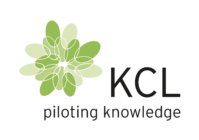Barrier coatings play a pivotal role in enhancing the functionality of packaging materials by providing essential protection. However, they can complicate the recycling process, posing a significant question: do barrier coatings affect recyclability? This article delves into the complexities surrounding this issue, shedding light on the environmental impact and sustainability of packaging materials. At KCL, we specialize in helping businesses navigate these complexities through our comprehensive barrier coating testing and recyclability assessment services.
What are barrier coatings and their purpose?
Barrier coatings are specialized layers applied to packaging materials to enhance their resistance to external factors such as moisture, oxygen, and grease. These coatings are crucial in extending the shelf life of products, ensuring quality and safety. Composed of various materials, including polymers, waxes, and biopolymers, barrier coatings are tailored to meet specific protective requirements. With the help of KCL testing and analysing services you can select the optimal barrier coating solutions for your specific product needs.
The primary use of barrier coatings is in the food and beverage industry, where maintaining product integrity is the most important function. By preventing moisture and oxygen penetration, these coatings help in preserving freshness and flavor. Additionally, barrier coatings are employed in pharmaceuticals and cosmetics, where protection from environmental factors is essential to maintain product efficacy. Our KCL laboratory offers comprehensive testing services to evaluate coating performance across various environmental conditions, ensuring your packaging meets industry standards.
How do barrier coatings impact recyclability?
The impact of barrier coatings on recyclability is a topic of ongoing debate. The primary challenge lies in separating the coating from the base material during the recycling process. Traditional recycling systems often struggle to handle coated materials, leading to contamination of recyclable streams and reduced quality of recycled products. KCL’s recyclability assessment service can evaluate your packaging materials and provide detailed insights into potential recycling challenges and solutions.
Moreover, the diversity in coating materials adds complexity to recycling efforts. Some coatings are not easily biodegradable or compatible with recycling processes, resulting in increased waste. This poses a significant challenge in achieving a circular economy, where materials are reused and recycled efficiently. At KCL we help you navigate these challenges by conducting state-of-the-art testing and help in understanding the results.
Are there alternatives to traditional barrier coatings?
In response to the environmental concerns associated with traditional barrier coatings, researchers and companies are exploring eco-friendly alternatives. These include bio-based coatings derived from renewable resources that offer similar protective qualities without compromising recyclability. KCL’s innovation lab is at the forefront of testing and validating these new sustainable coating technologies, and we can help you implement them in your packaging solutions.
Innovations in materials science have led to the development of coatings that are both effective and environmentally friendly. For instance, water-based and biodegradable coatings are gaining traction as viable alternatives. These options not only enhance the recyclability of packaging materials but also reduce the overall environmental footprint. Addition testing services KCL offers also consulting services to help your team transition to these more sustainable coating options.
Conclusion
The intersection of barrier coatings and recyclability presents a complex challenge in the pursuit of sustainability. While barrier coatings are indispensable for product protection, their impact on recycling processes and environmental health cannot be ignored. As we continue to innovate, the focus must remain on developing solutions that takes into accunt both functionality and recyclability. KCL is your partner in this journey, offering end-to-end support from material selection and testing to recyclability assessment and sustainable packaging development.
Ultimately, the shift towards eco-friendly barrier coatings is a promising step towards a more sustainable future. By prioritizing materials that support recyclability, we can minimize environmental impact while maintaining the high standards of quality and protection that consumers demand in packaging materials. Contact KCL today to learn how our expert team can help you optimize your packaging solutions for both performance and sustainability, ensuring you stay ahead in an increasingly eco-conscious marketplace.
